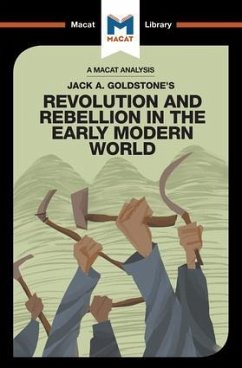
An Analysis of David Brion Davis's The Problem of Slavery in the Age of Revolution, 1770-1823

PAYBACK Punkte
6 °P sammeln!
Slavery had been accepted in Western culture for centuries. So why did a movement suddenly rise up in the industrial era calling for its abolition? Could it be that people had suddenly become more enlightened and humanitarian? Or were there other, more compelling and perhaps self-serving reasons for this sudden about-turn?














